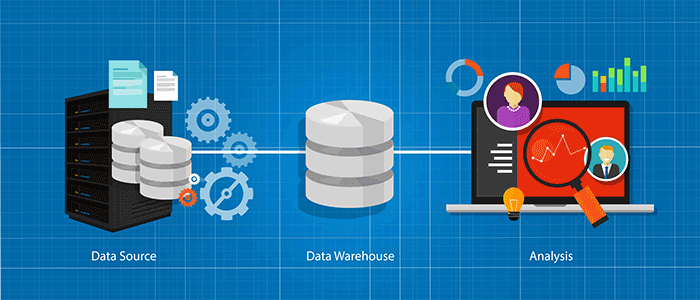
In today’s data-driven business landscape, the importance of a data warehouse cannot be overstated. Here’s why having a robust data warehouse is crucial for businesses:
Centralized Data Storage: A data warehouse serves as a centralized repository for storing structured and organized data from multiple sources across an organization. This unified view of data eliminates silos and provides a single source of truth for decision-making.
Enhanced Data Analysis: By integrating data from various operational systems into a data warehouse, businesses can perform complex queries and analysis more efficiently. This allows for deeper insights, trend identification, and predictive analytics that drive informed decision-making.
Supports Business Intelligence: Data warehouses are designed to support business intelligence (BI) and reporting tools. They provide a foundation for generating comprehensive reports, dashboards, and visualizations that enable stakeholders to monitor key performance indicators (KPIs) and track business performance in real-time.
Scalability and Performance: Data warehouses are optimized for storing and querying large volumes of data. They are designed with scalability in mind, allowing businesses to expand storage capacity and accommodate growing data volumes without compromising performance.
Historical Data Storage: Unlike operational databases that focus on current transactions, data warehouses retain historical data over extended periods. This historical perspective enables businesses to analyze trends, track performance over time, and make data-driven forecasts for future planning.
Facilitates Data Integration: Data warehouses streamline the process of integrating data from disparate sources, including databases, spreadsheets, CRM systems, and more. This integration simplifies data management and ensures consistency and accuracy across the organization.
Supports Regulatory Compliance: For industries with strict regulatory requirements, such as healthcare or finance, data warehouses provide a secure and auditable platform for storing and managing sensitive data. They help businesses comply with data protection laws and maintain data governance standards.
Empowers Data-Driven Decision Making: Ultimately, a data warehouse empowers businesses to leverage data as a strategic asset. By providing a comprehensive view of organizational data and enabling advanced analytics, it enables data-driven decision-making that drives innovation, improves efficiency, and enhances competitiveness in the market.
In conclusion, investing in a data warehouse is not just about storing data—it’s about unlocking its full potential to gain insights, drive business growth, and stay ahead of the competition. Ready to harness the power of data for your business? Contact us today to learn more about how a data warehouse can transform your data management and decision-making processes.

